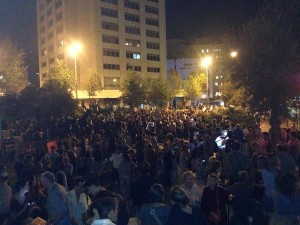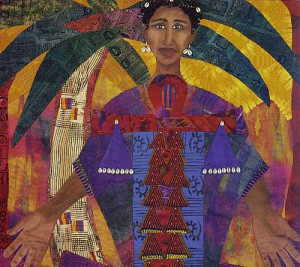Abraham didn’t tell her. Sarah was never consulted. That was the way it had always been, powerful men ruled the public domain and subsumed the domestic sphere making decisions that deeply affected the family and women. Historically and with few exceptions, women life-givers were not invited to offer, resist, or refuse when life-taking decisions were made, when their sons were called to become warriors, to endure danger and face death.
Thinking history/midrash is how we know that when Abraham was going to sacrifice Isaac, he did it stealthily, early in the morning when she was sound asleep, not suspecting a thing. Abraham woke up his son before dawn, when it was still dark outside, motioned him to get dressed, brought his finger to his lips to caution that Isaac was not to make a sound. When Isaac moved his head in the direction of Sarah’s tent, his father whispered, “Later, you can greet your mother when we return.” Only two young servants accompanied father and son when they left the compound, so Isaac knew that it would be a short journey, a couple of hours and they would be back. On long journeys there would have been numerous slaves, male and female, to carry, cook and set up camp. That day, however, Isaac could tell that his father was tense and deep in thoughts. As the sun rose in the sky and Isaac could see his father’s face, he heard Abraham tell the servants to wait along the road, “we will worship and we will return,” and father and son walked on together toward the Akedah, the binding of Isaac on the alter.



